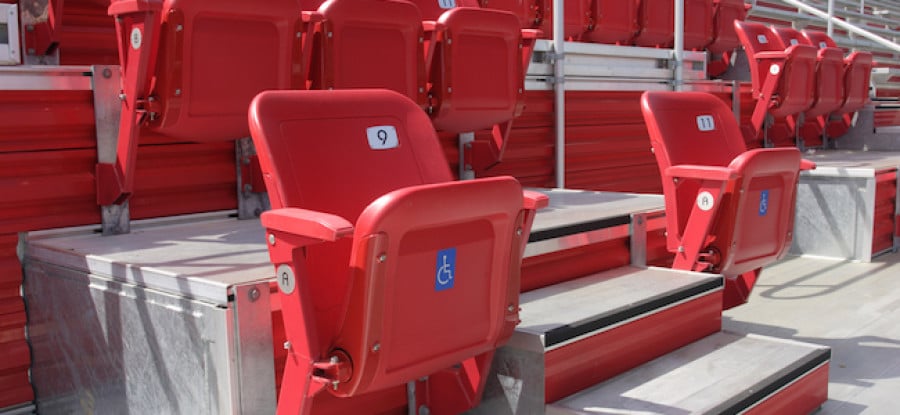How football clubs must change to meet the needs of disabled fans

This article examines the legal obligations on football clubs to provide disabled people with access and services at their stadia. It also looks at what clubs can and should be doing to meet these obligations. Particular focus is given to Premier League clubs given their profile. Specifically, the article examines:
- The current problems – the findings of the Government’s recent Report on the Accessibility of Sports Stadia;
- The law on disability discrimination in the UK – most notably the obligation on service providers (inc. football clubs) under the Equality Act 2010 to make “reasonable adjustments” to ensure disabled persons aren’t placed at a “substantial disadvantage”;
- What constitutes being placed at a “substantial disadvantage” in the context of football games? – A look at the relevant test;
- What constitutes a “reasonable adjustment” for football clubs to make in the context of their stadia?
- What clubs are currently failing to do and what they should be doing to ensure compliance with the law;
- The legal risks for clubs failing to comply with their obligations – disciplinary action and litigations risks; and
- Authors’ comment.
To continue reading or watching login or register here
Already a member? Sign in
Get access to all of the expert analysis and commentary at LawInSport including articles, webinars, conference videos and podcast transcripts. Find out more here.
- Tags: Accessible Stadia Guidelines | Disability | England | Football | Football Foundation | Governance | Premier League | Premier League Rules | Regulation | Report on the Accessibility of Sports Stadia | The Equality Act 2010 | United Kingdom (UK)
Related Articles
- Stand up for seating: why all-seated football stadia should be reconsidered
- How the Premier League is conquering global markets
- How the Premier League gives back to the community
- Copyright protections prevent publicans using foreign decoders to show Premier League matches: Luxton case review
Written by
Libby Payne
A former competitive fencer, Libby is now an equally enthusiastic employment and sports lawyer. She acts for both employers and senior executives and also for sports clubs' agents and athletes. Having a real passion for the law, Libby enjoys coming up with creative and practical solutions to even the most novel issues.
Andy Carruthers
Andy has recently started the first seat of his training contract in the real estate team. Supervised by Nicholas Vaughan, Andy will be working on a full range of property matters and will be assisting the residential, commercial, rural and real estate disputes teams.





